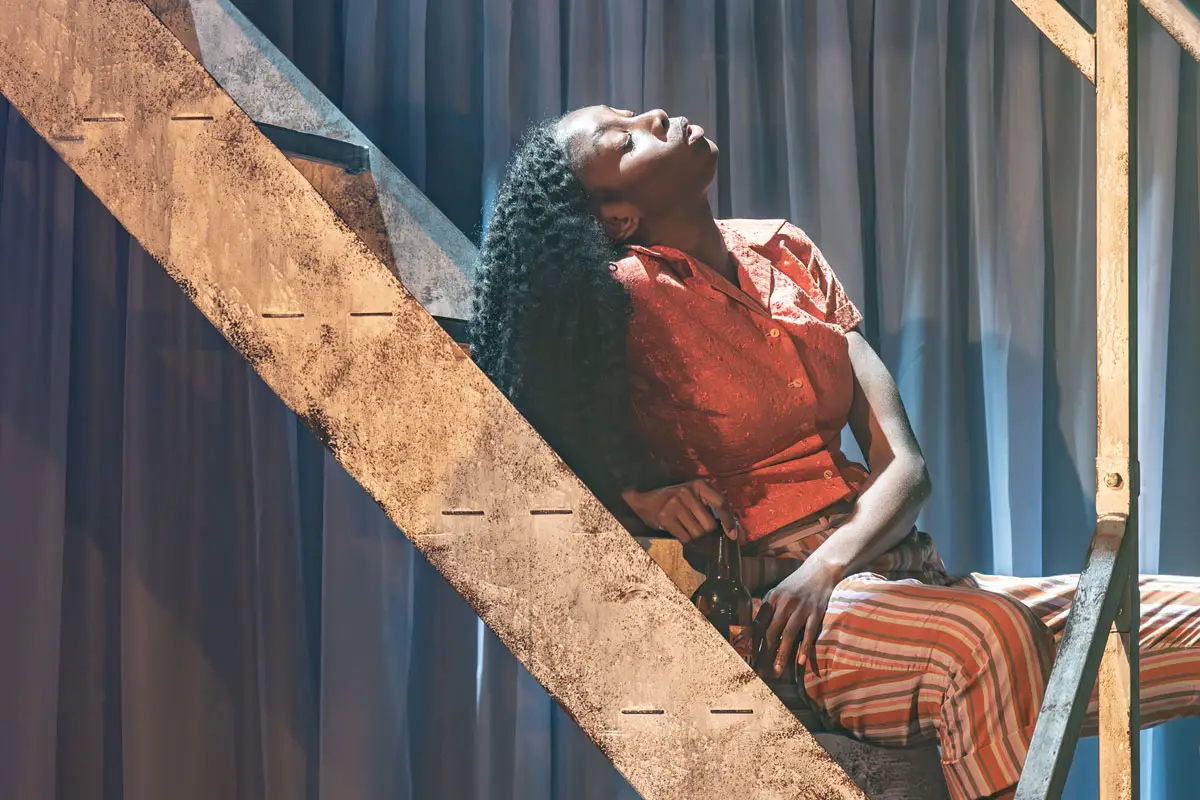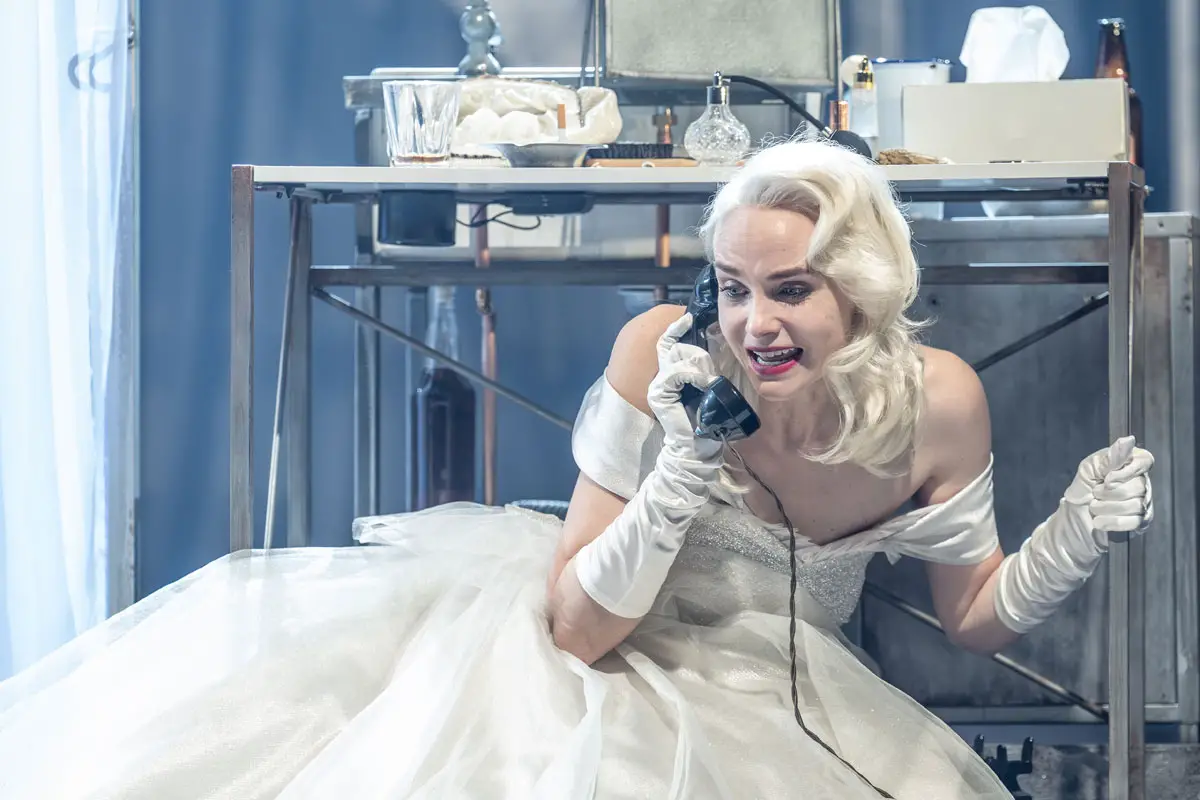A Streetcar Named Desire – Review – Sheffield Crucible Theatre

By Clare Jenkins, March 2025
In yet another week where male violence against women has made headlines, this taut, intense revival of Tennessee Williams’s 1947 uncompromising study of loneliness, anger and mental breakdown feels ever more disturbing, the final scenes ever more shocking.
In its exploration of complex relationships, including why some women stay with abusive men, it captures the chaotic lives many people lead. And, as Josh Seymour’s production shows, it can be as searingly powerful and poignant today as it was when first staged nearly 80 years ago.
Elia Kazan’s 1951 film subsequently set the bar almost impossibly high. Starring Vivien Leigh as southern belle Blanche DuBois, Kim Hunter as her sister Stella, and Marlon Brando as Stella’s blue-collar worker husband Stanley Kowalski, it remains a very hard act to follow. But thanks both to Seymour and to some truly compelling acting, this production manages to holds its own.
“Hysteria with vulnerability”
Set in 1940s New Orleans, the play opens with Blanche DuBois (a luminous Joanna Vanderham) making her way, nerves jangling in the sultry heat, to Stella’s slovenly two-room apartment in the French Quarter. It’s ostensibly for an anxiety-fuelled break from her teaching job. In fact, she’s had to sell the Mississippi family home due to debt and has nowhere else to go. Unfortunately, Stella (Amara Okereke) hasn’t mentioned the visit to Stanley (Jake Dunn), who is instantly antagonised by Blanche’s superior manner and affronts to his machismo. Blanche, meanwhile, is appalled both by her sister’s surroundings and by her choice of husband.
Criticising Stella’s appearance and calling Stanley ‘a little on the primitive side… common… bestial… ape-like…’, she soon demonstrates that she has no filters, no understanding of the impact her words might have, both on her listeners and, ultimately, on herself.
Vanderham’s Blanche is hauntingly jagged, constantly teetering, combining on-the-edge hysteria with vulnerability, flirty femininity with resentful defensiveness. On stage throughout, she captures both Blanche’s steeliness and her terror of what the future holds: her mouth stretching wide with brittle laughter one minute, trembling with inner angst the next. Perhaps her voice could be softer, less shrill, at times – as it is at the end, when it’s as flattened and lifeless as she herself has become. But she poignantly traces Blanche’s descent into full-blown alcoholism and fantasy. Ultimately, her fragile finesse is no match for the ‘animal force’ and ‘brutal desire’ of her brother-in-law.
“Mental disintegration”
Jake Dunn has the honed torso, surface swagger and below-the-surface anger required of Stanley, but not the sheer brutish charisma. More neighbourhood yob than full-blown Brando, he lashes out at Stella, hurls plates around in explosive bursts of fury and, in the climactic rape scene, is almost comically reptilian as he crawls onto the bed in his strange satiny pyjamas.
No wonder Blanche is so drawn to the lumbering kindness of Mitch, one of Stanley’s poker-playing gang, sensitively portrayed by Tayla Kovacevic-Ebong. With both of them yearning for love, respect and understanding, she sees him as ‘a cleft in the rock of the world that I could hide in.’
As Stella, Amara Okereke exhibits great strength of character, which begs the question of why she doesn’t just walk out, especially when her husband’s aggression is directed at her sister. As Blanche is led away by the doctor (Jack Ofrecio, who plays various parts with gentle, wordless, charm), Stella clutches her new-born baby and bawls with grief. And perhaps with an awareness of her own role in her sister’s mental disintegration.
Frankie Bradshaw’s pared-back, occasionally revolving set cleverly evokes the cramped apartment and thin walls, a flimsy curtain serving as the only barrier to privacy. Howard Harrison’s atmospheric use of lighting includes the occasional flash and crackle. Up above, a sultry jazzy piano is played, beautifully softly, by Dominic Rye, adding to the sense of a better life lost.
‘A Streetcar Named Desire’ is at Sheffield’s Crucible Theatre until March 29th
images: Marc Brenner










